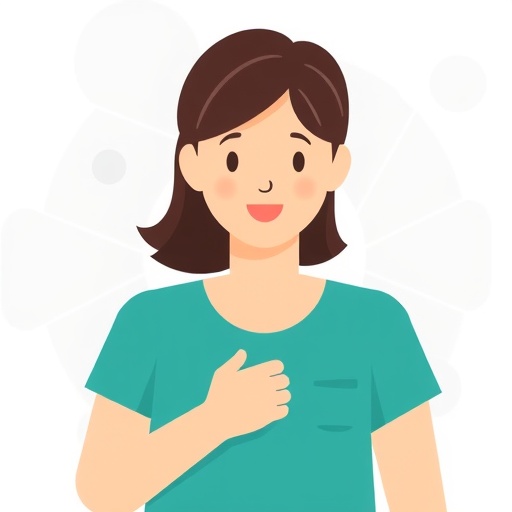A groundbreaking advancement in mental health research, recently published in BMC Psychiatry, introduces the Recovery Knowledge and Attitude Scale (R-KAS), a psychometrically robust tool designed to measure the knowledge and attitudes of professionals and students toward mental health recovery. The creation of R-KAS addresses long-standing issues with previously used measures, specifically the Recovery Knowledge Inventory (RKI), by providing a more nuanced and reliable assessment framework aligned with current recovery-oriented approaches.
The original Recovery Knowledge Inventory, despite its widespread use, has been criticized for lacking strong psychometric properties and not accurately capturing the multifaceted nature of recovery in mental health care. Recognizing these deficiencies, researchers embarked on a meticulous process to revise and improve the assessment tool. This involved gathering qualitative insights from mental health stakeholders and refining survey items to better represent the complex dimensions of recovery knowledge and attitudes.
In an exploratory sequential mixed-method design, the research team first conducted qualitative interviews with participants to deeply understand their perspectives on mental health recovery. These interviews were foundational, shaping the content and structure of the subsequent survey instrument. The qualitative data allowed the researchers to develop a set of items that comprehensively reflect contemporary recovery concepts, which were then quantitatively tested through an online survey assessing professionals and students in mental health fields.
The survey, completed by 173 respondents split between 115 mental health professionals and 58 students, utilized an initial pool of 52 self-reported items. Using exploratory factor analysis, the team rigorously examined the dimensionality of the scale, identifying items with insufficient loadings that detracted from the measure’s validity. After careful refinement, 14 items were removed, yielding a long version of the tool with 38 items and a more concise short version containing 21 items.
Both versions of the R-KAS comprise three distinct subscales: Competence, Roles and Responsibilities, and Process. These subscales reflect critical aspects of recovery knowledge and attitudes, capturing the skills needed for effective practice, clarity in professional roles, and understanding of recovery as a dynamic and person-centered process. This tripartite structure represents a significant conceptual advancement beyond earlier tools, offering users a more detailed breakdown of recovery-related knowledge domains.
Importantly, the psychometric testing revealed impressive outcomes: factor loadings for the retained items ranged from 0.60 to 0.81, indicating strong associations with their underlying constructs. Reliability analyses also demonstrated excellent internal consistency, with Cronbach’s alpha values of 0.95 for the long version and 0.93 for the shorter version. Such metrics reinforce R-KAS as a dependable instrument for research and clinical training evaluation.
The study further examined known-groups validity, an essential aspect of validity evidence demonstrating that the scale can differentiate between groups expected to differ in recovery knowledge. Professionals who had undergone specific training in mental health recovery scored significantly higher on the R-KAS compared to those without such training, confirming the tool’s sensitivity to variations in recovery-related understanding.
This innovative instrument arrives at a time when mental health practices worldwide are shifting towards recovery-oriented care models that emphasize empowerment, personal agency, and holistic well-being. The R-KAS can serve as a valuable metric for educators, clinicians, and policy makers to assess baseline knowledge, identify gaps, and evaluate the impact of recovery-focused training initiatives. Its adaptability to both professional and student populations facilitates broad application across educational and service delivery settings.
Developed through an iterative, evidence-driven process, the R-KAS exemplifies best practices in scale development by integrating qualitative perspectives and rigorous statistical validation. Its foundation in experiential feedback ensures relevance and resonance, while psychometric solidity guarantees the accuracy and consistency necessary for high-stakes assessments. Consequently, this tool sets a new benchmark for mental health recovery measurement.
The availability of both a long and a short form increases the instrument’s usability for diverse contexts; the longer version provides comprehensive detail when depth is necessary, whereas the shorter version offers efficiency without sacrificing validity when time or resources are limited. This versatility enhances the likelihood that R-KAS will be widely adopted in academic curricula and clinical supervision.
In summary, the R-KAS offers a sophisticated, empirically validated measurement solution tailored to contemporary recovery paradigms in mental health. Its development marks a pivotal step in bridging the gap between theoretical recovery principles and practical assessment needs, enabling stakeholders to systematically capture and cultivate recovery knowledge and attitudes that ultimately benefit service users.
Looking forward, the introduction of the R-KAS is expected to catalyze further research into recovery-oriented education and practice. With a tool that reliably measures nuanced recovery constructs, future studies can more effectively evaluate interventions, track longitudinal changes, and tailor training programs to optimize recovery outcomes across diverse mental health settings globally.
This pioneering work not only refines how recovery knowledge is gauged but also reinforces the critical role of psychometric rigor and participant engagement in developing instruments that truly reflect the lived realities and aspirations of those within the mental health field. The R-KAS stands as a testament to the evolving landscape of recovery science, promising enhanced alignment between measurement and meaningful recovery-oriented transformation.
Subject of Research: Measurement of mental health recovery knowledge and attitudes among professionals and students
Article Title: Measurement of mental health recovery knowledge and attitudes of professionals and students: development of the R-KAS tool
Article References:
Badu, N., Schutte, N., Rice, K. et al. Measurement of mental health recovery knowledge and attitudes of professionals and students: development of the R-KAS tool. BMC Psychiatry 25, 551 (2025). https://doi.org/10.1186/s12888-025-06995-x
Image Credits: AI Generated




